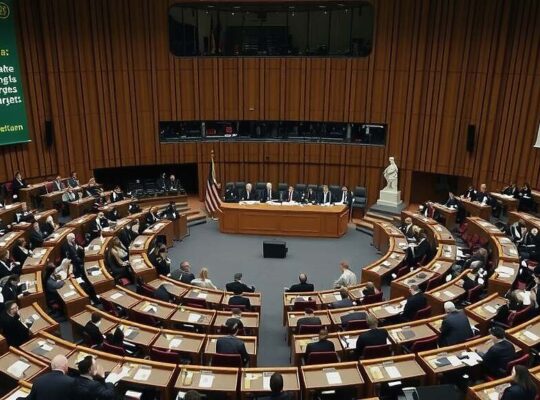A faction of young parliamentarians within the Social Democratic Party (SPD) has launched a robust defense against accusations that the government’s proposed pension reforms are inherently unfair to younger generations, arguing against a deliberate framing of the debate as a “young versus old” conflict. In a recently released paper, reported by ARD Hauptstadtstudio, the group of roughly 30 representatives, led by Carmen Wegge, Annika Klose, Johannes Schätzl and Daniel Rinkert, emphasize a focus on socioeconomic equity rather than intergenerational animosity.
The core argument centers on the urgency of the pension package, deemed essential to prevent widespread poverty among retirees. The paper highlights that over half of the German population relies solely on statutory pensions, a demographic group particularly vulnerable to cuts. The young SPD members assert that any reduction in pension provisions risks abandoning individuals after a lifetime of work.
The critique doesn’t stop at opposing the portrayal of a generational conflict. The paper directly challenges the conservative Christian Democratic Union (CDU) and Christian Social Union (CSU), branding their championing of a specific approach to intergenerational fairness as “label fraud”. The conservatives are accused of advocating a model that shifts the burden of securing current pension levels onto younger individuals, while simultaneously denying them any benefit from those contributions upon their own retirement. “If we, as young people, contribute, we want to get something out of it” the paper states plainly.
The faction calls for a broader discussion of the complex issues surrounding the pension system to be channeled through the upcoming Pension Commission. This body will be tasked with exploring potentially significant expansions, including incorporating self-employed individuals, civil servants and politicians into the statutory pension insurance system. The young SPD group insists that, in the interim, the primary objective must be maintaining pension stability, even as the Commission develops its recommendations. This stance suggests a careful balancing act: acknowledging the need for long-term systemic revisions while prioritizing immediate reassurance to a population increasingly concerned about the future of pensions. Whether this nuanced approach will succeed in bridging the divisive rhetoric surrounding the reforms remains to be seen.












